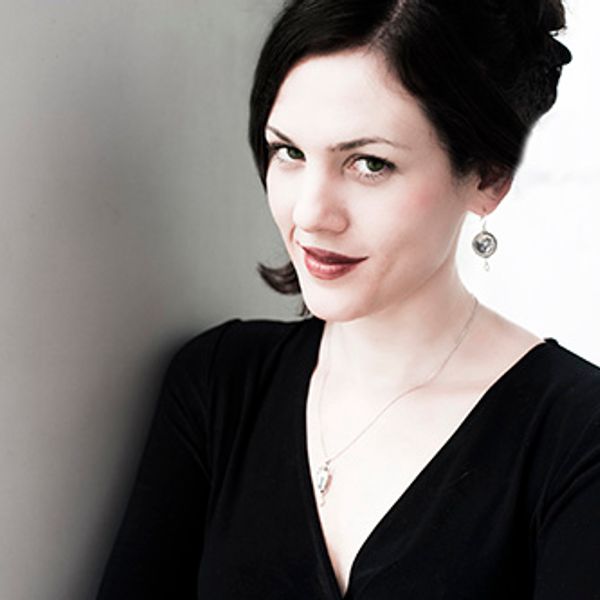Lia Purpura, Decaying Wood (detail), featured in AGNI 102
We Are Magic Talking to Itself
Frank Bidart once said about “confessional” poems, that “art, not candor, makes a poem.” He was arguing (rightly) that Robert Lowell’s seeming candor was artful, and poems should be read for their art, rather than the value of what may be shocking in them. This seems an important distinction when reading Sexton and Plath, women considered groundbreaking for their “confessing.” My poem “Without” (in AGNI 87) is an homage to Sexton and Plath, whose work is shaped by brilliant artifice and technical care. They employ confessional voices and fictionalized I’s, in order to address a you at once personal and public. In my favorite poems, “You, Doctor Martin,” and “Morning Song,” Sexton and Plath (ostensibly) address a therapist and a newborn baby, yet those variable and elastic you’s also imply, invite, and implicate readers. Their poetry translates material potentially too taboo to be discussed in any way less lyrical: sex, suicide, illness, madness, and motherhood.
In the acts of Sexton’s and Plath’s poems, each poet is both the I and the you, doctor, patient, baby, writer and reader. This synthesis permits a more powerful POV and position than any possible without the trick of first and second pronoun work. Confessional poetry gives women a way to align our lives, full of the particular difficulties of any individual life, and also the shared contradictions and complexities that are the substance of all human endeavors.
As readers and addressees of second person poems, we are at once confided in and made vulnerable in a way that mimics that in which the poets are simultaneously confessing and obfuscating with their poetic uses of “I.” We must hide and own up, too. The real Dr. Martin, Sexton’s therapist, Dr. Martin Orne, distinguished fiercely between Sexton as a poet and Sexton as a person, favoring “the real Anne Sexton,” whose work he considered distinct from her person. He described writing as what she did, in opposition to what or who she was. She, on the other hand, considered her poetry collaborative work (with Orne) and part of her identity.
Orne argued against blurring the boundaries between Sexton’s poetic and real selves, but fusion may in fact be the purpose and transcendent magic of confessional poetry. Both the content and form are subversive, and it is precisely the studied, intentional intimacy that forces readers to look directly at the subject matter and subjects of confessional poems. And, importantly, to consider ourselves as possibly among those subjects. Confessional poems, maybe counterintuitively, enforce literary empathy.
Sexton opens her asylum poem with the line, “You, Dr. Martin, walk from breakfast to madness,” and we are voyeurs, eavesdropping on their conversation. But by the time she adds, “There are no knives for cutting your throat,” we are still you, no longer Dr. Martin, but patients with our own throats protected by the absence of tools with which we might slice them. This threatens our tenancy in the land of the unscathed and reliably sane, connecting us to Sexton even as it reveals her multiple faces: you, I, we, and us. She is confessing not just what sets her apart from either Doctor Martin or her reader, but what – more disturbingly and profoundly – connects us all.
Poems shoot doubt and contradiction through our identities, as we resist the possibility of narrowing ourselves to any single identity. Confessional poems liberate explicitly, letting us reveal and hide, hold contradictions in our minds and lines, inhabit and align multiple versions of ourselves. They issue powerful invitations to readers to do such work, too. “Without” let me be both I and you, vulnerable boss of my own poem, yet also fearful subject and object. I am the I and not the I, the you and not the you, multiple versions of myself connected by the magic of writing and reading—to you, whoever you may in fact be.

Rachel DeWoskin
Rachel DeWoskin is the author of Two Menus: Poems (The University of Chicago Press, forthcoming 2020); the novels Banshee (Dottir Press, 2019),Someday We Will Fly (Penguin, 2019), Blind (Penguin, 2014), Big Girl Small (Farrar, Straus & Giroux, 2011), and Repeat After Me (The Overlook Press, 2009); and the memoir Foreign Babes in Beijing (W. W. Norton & Co., 2005). She is on the core fiction faculty at the University of Chicago and is an affiliated faculty member of the Centers for East Asian Studies and Jewish Studies. (updated 10/2019)
